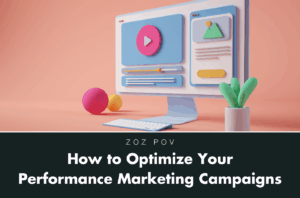In an industry where patient well-being and confidentiality are paramount, biotech companies face a unique challenge: balancing strict data privacy regulations with the need to reach and engage both healthcare providers (HCPs) and patients. This post will explore the nuances of data privacy in biotech marketing, addressing how companies can adhere to stringent privacy standards while still taking advantage of marketing opportunities that expand reach and build trust with their audience.
Understanding Data Privacy in Biotech Marketing
Data privacy in the biotech space isn’t only about complying with regulations; it’s about safeguarding sensitive information to foster trust and credibility in the marketplace. Biotech companies gather and handle data for various purposes, from clinical trials and patient outreach to marketing initiatives aimed at both HCPs and patients. Ensuring the protection of this data is crucial for maintaining compliance and upholding a brand’s reputation.
For biotech companies, the stakes are particularly high. Non-compliance with data privacy regulations, like the Health Insurance Portability and Accountability Act (HIPAA) in the U.S. or the General Data Protection Regulation (GDPR) in the EU, can result in steep fines, legal complications, and a severe loss of trust among both patients and providers. Marketing teams have to carefully evaluate each approach, balancing innovation with compliance.
Key Issues Biotech Marketers Face in Balancing Privacy and Reach
Complex Compliance Requirements Across Jurisdictions
Regulatory frameworks such as HIPAA, GDPR, and various state-level laws create a complex web of compliance requirements. Biotech companies and their agencies need to understand where their patients and providers are located and comply with the respective regulations, which can vary significantly from one region to another.
Balancing Personalization with Anonymization
Personalization can enhance engagement with both HCPs and patients by delivering relevant content based on an individual’s specific needs or interests. However, personalized marketing relies on detailed data about individuals, which can conflict with privacy regulations requiring data anonymization.
Patient Trust and Data Sensitivity
In an age of constant hacks and data breaches, patients are often understandably wary of sharing their medical information, fearing potential misuse or exposure. Establishing and maintaining trust requires transparency in how data is collected, stored, and used. Missteps can erode patient trust and harm brand reputation.
Reaching Providers Without Overstepping Boundaries
Marketing to HCPs involves leveraging data-driven insights about their specializations, interests, and behaviors. While HCPs may appreciate tailored content, over-targeting or using overly specific data can lead to discomfort, making it crucial to find a balance between personalization and respect for privacy.
Data Security Risks
Beyond compliance, data security itself is a concern. Marketers must collaborate with IT departments to ensure robust cybersecurity measures are in place, from encryption and 2FA to restricted access and regular audits, protecting sensitive information from potential breaches.
Strategies to Balance Privacy with Expanding Reach
Implement Privacy-First Personalization Techniques
Rather than relying on identifiable patient data, companies can use aggregated or anonymized data to develop audience personas and segmentations. This approach allows marketers to target broader patient or HCP segments based on general characteristics without risking privacy breaches.
For instance, instead of targeting individual patients, biotech companies can reach groups based on health interests or specific geographic regions. When privacy is prioritized, patients are more likely to feel comfortable engaging with marketing content, contributing to a stronger and more trusting brand relationship.
Transparent Data Collection Practices
Transparency is a cornerstone of effective data privacy management. Clearly communicating how data is collected, used, and protected reassures both HCPs and patients. This can be achieved by:
- Including accessible privacy statements on websites and marketing materials.
- Gaining explicit consent before collecting or using any personal data.
- Providing options for individuals to control their data preferences, such as opting out of personalized marketing.
Biotech companies that are transparent about data collection are more likely to cultivate trust among patients and HCPs, ultimately enhancing their reach and engagement.
Use Privacy-Centric Analytics Tools
Many advanced analytics tools offer privacy-compliant tracking and reporting features. These tools enable biotech marketers to gain insights without directly identifying individual patients or providers. Tools like Google Analytics 4 (GA4), for example, allow marketers to analyze aggregated user behaviors without violating privacy regulations.
By leveraging privacy-centric analytics, biotech companies can still understand audience behaviors and preferences while respecting privacy laws and limiting exposure to regulatory risk.
Deploy Role-Based Access Controls
When handling sensitive data, restricting access to only those who need it is crucial. Role-based access control (RBAC) limits the data marketers can view or use to what’s necessary for their work. For example, sales teams might have access to aggregate metrics but not individual patient or HCP data.
Restricting data access minimizes the likelihood of accidental exposure or misuse, protecting both patient information and the organization’s compliance posture.
Prioritize Consent Management
A robust consent management process not only ensures compliance but also demonstrates respect for patient and HCP autonomy. Consent management tools allow biotech companies to easily collect, store, and manage user consents. Users can opt-in or opt-out of specific data uses, such as receiving personalized marketing communications.
By giving patients and HCPs control over how their data is used, companies build credibility, fostering trust and engagement with both audiences. Additionally, consent management tools provide a reliable audit trail, helping marketers track compliance efforts.
Risks of Playing it Too Safe
While safeguarding data is paramount, excessive caution in biotech marketing can lead to missed opportunities to engage with HCPs and patients. Here are some common pitfalls of overly conservative data practices:
- Lack of Personalization – Avoiding data usage altogether can result in a one-size-fits-all approach that may not resonate with target audiences. Patients and providers alike expect personalized content, and companies that fail to deliver this may miss opportunities for deeper engagement.
- Limited Audience Insights – Excessively limiting data collection restricts the marketer’s ability to understand audience needs and preferences. This can prevent biotech companies from tailoring their messaging and targeting effectively, reducing potential market reach.
- Underutilization of Digital Marketing Channels – In trying to avoid compliance issues, companies may shy away from digital marketing channels that involve data tracking or analysis, such as social media or remarketing. This can lead to a narrower reach and fewer conversions.
- Increased Dependence on Traditional Marketing – Without the ability to leverage data-driven digital strategies, some companies may revert to traditional marketing tactics like broadcast, direct mail or print advertising, which lack the reach and targeting capabilities of digital campaigns. These traditional approaches also frequently result in significantly less efficient media spend.
Finding a Balance
The goal for biotech marketers is to strike a balance between data protection and effective marketing. Here are some final steps companies can take to achieve this equilibrium:
- Embrace Privacy-Enhancing Technologies (PETs)
PETs are tools that help protect data throughout its lifecycle, allowing companies to analyze data without compromising individual privacy. Examples include differential privacy, where noise is added to datasets to prevent identifying individuals, or federated learning, which enables data analysis across devices without pooling data centrally.
- Conduct Regular Data Privacy Audits
Routine privacy audits are essential for identifying potential vulnerabilities in data handling processes. These audits help biotech companies assess compliance, adapt to evolving regulations, and reinforce best practices within marketing teams.
- Partner with Compliance Experts
Compliance regulations are complex and constantly changing. Working with legal and compliance experts ensures that data handling practices remain up-to-date and in line with the latest privacy laws. These partnerships can also help marketing teams navigate new channels or tactics that may pose additional privacy challenges.
Marketing Biotech
Navigating data privacy in biotech marketing requires a careful balance between protecting sensitive patient information and leveraging data to reach and engage a broad audience. By employing privacy-centric marketing strategies and adhering to regulatory standards, biotech companies can gain the trust of both HCPs and patients while maximizing their market reach.
In the end, those biotech companies that can align their marketing practices with data privacy standards will stand out as trustworthy, innovative leaders in the field. By respecting data privacy without compromising reach, these companies can continue to build relationships, promote health innovations, and support patients and providers alike.

Nick Lowe
Senior Partner
Nick is focused on building an elite team of experts that can do extraordinary work for our clients. Since founding Zozimus, the agency has grown steadily to a full-service offerings supported by industry veterans and rising stars alike. Nick has spent a lot of time building an organization and structure that can scale, but it’s his involvement in key client projects that makes him most excited.
BOSTON, MARS



